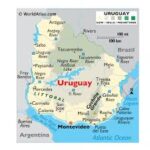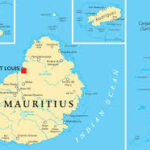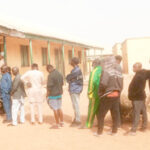The reactions to the conduct of the keenly awaited presidential election of February 25 followed a pattern only the inimitable and incomparable singer, Chief Stephen Osita Osadebe, could have rendered: Osondi Owendi. As others are happy, others are sad; one man’s trash is the other’s treasure etc. In a sense, this is an apt description of the outcome of an exercise in which there must be winners and losers.
But in the aftermath of the testily contested presidential election of two weeks ago, not a few Nigerians and members of the international community were disheartened or outraged. International observers reported that the elections came short. The United States Ambassador to Nigeria, Mary Beth Leonard, in a rare op-Ed remarked: “It is clear that the electoral process as a whole on 25 February failed to meet Nigerians’ expectations”.
Chatham House, a British policy think tank, which Nigerians and its Election Management Body (EMB) morphed into an intellectual Mecca ahead of the elections, took a dim view of the election. It stated: “The INEC’s performance and controversies over these results mean that the electoral reforms and lessons declared to have been learned were not fully applied and, as an electoral body, it was significantly less prepared than it claimed.”
Nigeria’s spritely and vibrant media and civil society felt let down. Most were describing the elections in plangent terms. Strong words such as “betrayal” and “deception” were deployed to describe how the EMB, the Independent National Electoral Commission (INEC) treated their influential communities. This feeling of being taken for a ride was inspired by the fact that INEC went against the grain of its elaborate regulations and guidelines. Against its clarion professions, the commission failed to upload Polling Unit (PU) results on its INEC Results Viewing Portal (IReV) as the election unfolded.
- CBN yet to release old notes to banks
- Gov’ship polls: INEC completes BVAS re-configuration, begins deploymen
The major opposition political parties, Peoples Democratic Party (PDP) and Labour Party (LP), have, rather than defer to the majesty of the democratic process by conceding, elected to go to court. This is healthy for the process since the courts will eventually adjudicate and issue pronouncements that enrich and fortify our democracy. It is healthier still that the aggrieved parties and their candidates found recourse in the courts rather than violence.
Arising from the complications of the court cases (after the conduct of the presidential election), the commission has re-scheduled the conduct of the Governorship and State House of Assembly elections for March 18. No doubt, this re-scheduling will visit inconveniences on institutions of learning and millions of Nigerians who had planned or adjusted their calendars and activities in concert with the previous timetable.
It will increase costs for certain stakeholders such as political parties, candidates, observers and the media. Candidates will now have to campaign until 48 hours to the election. Observers, especially foreign ones, will either extend their stay or scale down their presence. In addition, the re-scheduling will prolong the tension associated with elections in our clime.
Even though the re-scheduling will increase costs for some and be a source of inconvenience to many, it will give time to stakeholders, especially civil society to recuperate. It will give time for the media and civil society who are hurting to recover and reinvigorate.
Their grouse is that they were sold the idea that the Bimodal Voter Accreditation System (BVAS) and the IReV would work seamlessly and that they would game-change the elections in the same fashion that the Smart Card Reader (SCR) and the Permanent Voter Card (PVC) did in 2015. Persuaded by this, the media and civil society ran, pronto, with it, zealously marketing the idea to Nigerians. Alas, the IReV, one of the two major pillars on which the elections were erected collapsed.
Besides this, the two, media and civil society, feel downcast because they had fought valiantly alongside the commission to bring about the enactment of the Electoral Act, 2022, with its sundry uplifting provisions.
Apart from the media and civil society, millions of Nigerians were disappointed. The voters who showed extraordinary resilience and steadfastness in the first set of elections are hurting. It is feared that many may not turn up in the next set of elections. This is because the IReV, which added transparency to recent off-cycle governorship elections, and which served as a huge incentive, failed to work in the presidential and National Assembly elections.
But rather than despair, the re-scheduling should offer a viable opportunity from the crises and shortcomings spawned by the conduct of the presidential election. Stakeholders, particularly the political parties and candidates, who are the chief beneficiaries of the process, should be in the forefront pacifying voters and entreating them to come out in their numbers to exercise their franchise this coming Saturday. For, though the presidential election was a major attraction and cynosure on account of the presidency’s capacity to re-purpose and re-set the country, the Governorship and State House of Assembly elections are crucial.
Apart from the fact that a total of 1,201 (28 governorship and 993 legislative positions) are up for grabs, these are offices proximate to our people. Translation: they can make or mar the fortunes of our people. In spite of the shenanigans of most of our governors, a few have distinguished themselves by affecting their citizens positively. Nyesom Wike, David Umahi and Babagana Zulum are a radical departure from the charlatanism that characterizes governance in most states.
Our voters must vote in quality people to the government houses and houses of assembly across the country. These will in turn deliver good governance and salvage us from the bad place in which we are.
More importantly, INEC must latch on to this one-week window to hone its processes and deliver a stellar performance. The gap between all its lofty promises and its dismal performance must be foreclosed: The BVAS must work seamlessly. Where there are glitches, we expect the Registration Area Technical Staff (RATECH) to be readily on hand and to promptly troubleshoot. The IReV must work optimally and PU results should be uploaded real-time as solemnly pledged. Logistics, particularly at the registration area centres/wards to polling units link should be thoroughly addressed.
This is an opportunity for INEC to make amends and redeem itself. Mercifully, it has always demonstrated a knack to bounce back from the brink of disaster. It must not bungle these elections.
Nick is a former director at the Independent National Electoral Commission (INEC)

 Join Daily Trust WhatsApp Community For Quick Access To News and Happenings Around You.
Join Daily Trust WhatsApp Community For Quick Access To News and Happenings Around You.


